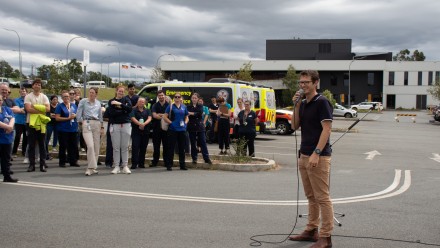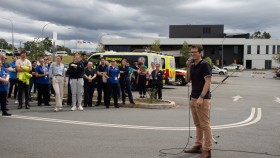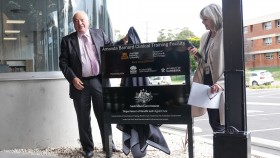The impact of the pandemic on our communication and presentation skills
Professor Beena Kumar asks "Has our confidence and eloquence changed for the better?"
I am an Anatomical Pathologist by profession with a keen interest and expertise in breast, lymphoid and molecular pathology. I have been in leadership roles at Monash Health over the last ten years as the Deputy Director and then the Director of Anatomical Pathology and the Program Director of Pathology.
The pandemic has had all of us on a roller coaster over the last few years, with challenges both on personal and professional fronts.
Losing some near and dear ones to the deadly virus back in India was hard to deal with. The one death which left me heartbroken, was that of my mentor, a well-regarded pathologist in New Delhi, India, who motivated me to pursue pathology as a career as he believed that pathologists provided the “final answer” and had a very responsible and important role to play in medicine.
It was during the COVID crisis that I took on the role of the Program Director of Pathology at Monash Health. Heading the pathology laboratory within Monash Health, the largest health service in Victoria, during the pandemic was initially a challenge, yet was very rewarding.
My parents had always taught me to turn challenges and adversities into opportunities and the COVID crisis helped me achieve that, both for myself and my peers.
Let me focus on communication skills, which some get naturally, some work towards it consciously and some always struggle. Did the pandemic help us get better at communication? This is the story of how I myself learned these skills, and used my leadership skills to enable my wonderful team to communicate better.
Let me rewind back 21 years of my life when I moved to Australia. My first employment was at the Walter and Eliza Hall Institute in Melbourne, where I was pursuing a research / academic role. What struck me most then, was the clarity of verbal expression and communication skills which the people in this country had. I had a conservative upbringing where we were taught to speak softly and very carefully, at the expense of holding back one’s views and ideas. I was determined to change myself and hence actively participated in seminars, conferences and got over the apprehensions and fears associated with public speaking.
Within two months of my role as the Program Director, my colleagues and I had to participate in some of the weekly Employees forum at Monash Health, where we had to present to our employees, important information about COVID testing in our laboratory. While I had worked on acquiring communication skills over the years, there was nevertheless some anxiety with these events, as it was not only about showcasing myself, but was also about representing pathology within my organisation. During the practice session leading on to main event, our Chief Executive Officer, Prof Andrew Stripp, probably sensed the tinge of nervousness in all of us and stated something very simple – “you will all be fine, just tell yourselves that you are talking to the computer screen”. That sentence was so powerful, it stuck in my mind. During that presentation, I focussed on the computer screen and not on the hundreds of employees logged on to the forum and it worked well for me!
As I personally attended multiple meetings and participated in teaching programs within the organisation, I had the opportunity to be able to confidently represent the department of pathology and Monash Health at various forums. It also taught me various other leadership skills such as balancing politeness with assertiveness, making a distinction between empathy and emotion; using self-confidence to command respect; and knowing when to focus on talking versus listening.
The usual departmental operational meetings that I chaired were on hold as pathologists were working out of different campuses within the health service network and travel between campuses was not encouraged. I used this opportunity to convert our meetings to the virtual format. There was the initial resistance and reluctance amongst the pathologists but that slowly changed. In the early days, the more confident employees always had something to say, and the introverted, shy cohort stayed quiet. I particularly recall one instance at a clinical meeting, when I heard one of our pathologists speak up loud and clear, quite a contrast to the face-to-face version of him. I realised that “talking to a computer screen” was probably working for him and that I could capitalise on that to improve communication skills within the introverted cohort of pathologists.
I began using the “talking to the computer screen mantra” to motivate my quieter colleagues. I consciously changed the format of these meetings, to ones with fixed agenda with allocated speakers for each of the agenda items, including educational sessions, quality-related presentations and sharing of good news stories.
Over the last two years, I have noticed a welcome change. There is wider participation - all the pathologists have been able to present themselves with a lot more confidence at clinical meetings and have been very forthcoming with their views and opinions on clinical and laboratory issues.
The good news stories section has provided the pathologists and registrars with opportunities to talk about their hobbies and hidden talents. This has resulted in more collegiality and inclusiveness amongst the employees.
The pandemic has certainly had a positive impact on our communication skills. Let us keep our confidence and eloquence going!!











